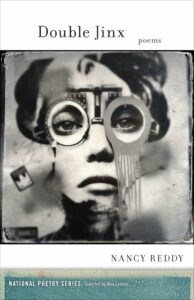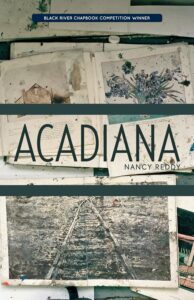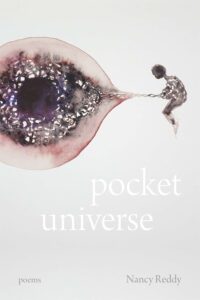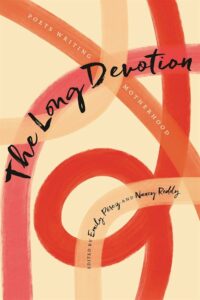Fewer Experts, More Support: An Interview with Nancy Reddy
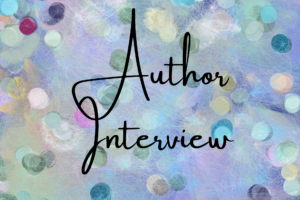 If I were the type to be intimidated by other people, my guest today would be the one to do it! Nancy Reddy is a writer and teacher who “holds an MFA in poetry and a PhD in rhetoric and composition.” She’s written “scholarly work on writing studies and materiality, creative writing pedagogy, and community literacy, and [she’s] published that work in Community Literacy Journal, Literacy in Composition Studies, and The Journal of Creative Writing Studies.” Add to that a list of books, including the now available The Good Mother Myth: Unlearning Our Bad Ideas About How to Be a Good Mom. And that’s not all! Her newsletter, Write More, Be Less Careful, addresses “why writing is hard and how to do it anyway.” It’s one of my favorite newsletters to read, partly because of the material, but mostly because of how much of Nancy shines through in each letter. That’s something that can be said of all Nancy’s work, in my opinion. Heartfelt, thoughtful, and always authentic, I’m awed (not intimidated!) by Nancy’s talent and generosity. Excellent writer, excellent human, and goodness knows we need more of those in today’s world.
If I were the type to be intimidated by other people, my guest today would be the one to do it! Nancy Reddy is a writer and teacher who “holds an MFA in poetry and a PhD in rhetoric and composition.” She’s written “scholarly work on writing studies and materiality, creative writing pedagogy, and community literacy, and [she’s] published that work in Community Literacy Journal, Literacy in Composition Studies, and The Journal of Creative Writing Studies.” Add to that a list of books, including the now available The Good Mother Myth: Unlearning Our Bad Ideas About How to Be a Good Mom. And that’s not all! Her newsletter, Write More, Be Less Careful, addresses “why writing is hard and how to do it anyway.” It’s one of my favorite newsletters to read, partly because of the material, but mostly because of how much of Nancy shines through in each letter. That’s something that can be said of all Nancy’s work, in my opinion. Heartfelt, thoughtful, and always authentic, I’m awed (not intimidated!) by Nancy’s talent and generosity. Excellent writer, excellent human, and goodness knows we need more of those in today’s world.
Welcome, Nancy!
Christina: I’m thrilled with your newsletter Write More, Be Less Careful, which stems from a column you used to write for Pank. You say that the newsletter “continues [your] obsession with creativity, productivity, writing process, and getting unstuck.” Why the newsletter format? What differences do you find between a column and a newsletter? How’s it all going?
Nancy: For me, the biggest difference is the sense of immediacy with a newsletter: when I hit send, it goes directly into people’s inboxes, which makes writing it feel really personal and immediate. It also means that I get direct feedback—readers email me back, comment, share it, and that’s been so valuable to me. Writing can be so lonely, and my newsletter reminds me that we’re never really doing it alone. I think it does that for my readers, too.
One of the things I love most about writing my newsletter, especially as our readership has grown, is being able to share that space with other writers. I run a regular interview series, good creatures, about the intersection of caregiving and creativity. I’ve learned so much from the writers and artists we’ve featured, and I think my readers are really eager to learn about how other caregivers are making space for their creative work. (And that’s how we met!)
Christina: How and when did your obsession with “creativity, productivity, writing process, and getting unstuck” come about?
Nancy: It came from my own feeling of deep stuckness! I’d started writing essays, or trying to, but I kept getting bogged down. I had a folder of half-finished drafts, and the more I wrote and didn’t finish, the worse I felt.
At the same time, I felt like, I do actually know something about writing and writing process! At that point, I’d already published two books of poetry and I’d written a dissertation and I’d studied writing process and pedagogy as part of that PhD. So I thought, how can I use what I know to help me get unstuck? In the original column, I was doing a lot of interviews with people who had expertise of different kinds in the creative process: Jessica Abel, an illustrator and creativity coach, who talked about the magic of one thing for achieving your creative ambitions; writing studies scholar Hannah Rule, whose work challenges some conventional wisdom about freewriting and thinks about the materiality of the writing process.
The rhythm of a regular deadline did so much to help me get unstuck. Every time you finish one thing, it makes it easier to get back to work and finish the next thing. That really practical focus—like, literally what am I working on next?, how do I finish a writing project?—is a throughline in Write More as well.
Christina: Much of your work centers on motherhood, which is so rich with experiences to write about. Are there any mothering experiences you think you wouldn’t write about?
Nancy: I’m less interested in writing about my kids now that they’re older. The writing I’ve done about motherhood is really about me and about the institution; my kids are actually kind of incidental to it. The Good Mother Myth encompasses my first two years of motherhood, and Pocket Universe goes a little farther, ending with my first son’s fifth birthday party. My sons are now 9 and 11, and I find them incredibly interesting, but I also want to give them space to grow up and live their own lives without my writing about it layered over them.
Christina: In getting ready for this interview, I read a lot of your poetry, which resonated with me deeply. One line in particular ends your poem “Postpartum,” and it reads, “I’d thought/ that when the baby came I’d be myself but better. I’m not.” I can’t imagine a mother who reads that poem and doesn’t stop there and linger on that perfect ending. Can you comment?
Nancy: That ending! I revised it and tinkered with it so many times, and I just looked at it as it appears in Pocket Universe, and I can see I took out the final sentence—the “I’m not.” A mentor had suggested that the sentiment was implied and I didn’t need to be so explicit, but now that I rethink it, I’m not sure.
In Pocket Universe, that poem is at the beginning of the second section; the first section concludes with a poem titled “Golden Hour” that ends “in the hospital I’m a good mother,” another feeling that I suspect many mothers will be able to relate to. (So many loving nurses helping out! People just bringing food right to your room! Then they just send you home with a tiny stranger and you’re supposed to do it all yourself.)
So those two poems get at, I think, the contrast between the dream of transforming from an ordinary woman into a “good mother” and the reality of the postpartum period.
I should say that, as much darkness and postpartum weeping as there is in the book, it also really arcs toward joy. The second half of the book has poems about my older son’s glee in learning baby sign language, about reading books together at bedtime, about the boys hugging at daycare. The book ends with a poem, “Dark Matter,” about a child’s birthday party and my feeling, gathered with all those kids and their parents, of our “collective unbearable luck.”
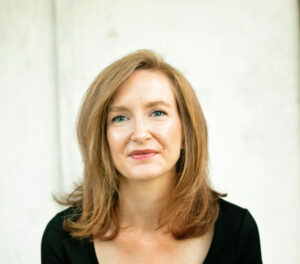
Christina: In an essay for Electric Lit, you talk about approaching early motherhood as if it were a research project, reading, studying, etc. But then, your healthy baby had “strong lungs and a penchant for nighttime wailing. And I was convinced I was a bad mother.” Many mothers would see themselves in those words. Where do you think that feeling of being a bad mother comes from? How does our society help ingrain that into us? What do we need to do to help more mothers not feel that way?
Nancy: That’s really what my new book, The Good Mother Myth, is all about—the really bad and dangerous idea that being a good mother means doing it all yourself, that mothers just instinctively “know” how to care for their babies, that they’ll love their babies so much that they won’t mind the missed sleep and constant labor of caring for a really tiny new person.
The short version is that we all need fewer experts and more support. All that research was of pretty limited use in the actual work of caring for a child. What made a difference was the support from family, friends, and community: a breastfeeding clinic where I sat with other mothers who were struggling to nurse, friends who’d come over and hang out even when I hadn’t showered and the house was a mess. I think being really honest about what’s hard and what helps is the first step toward helping future new mothers have an easier time. That, and actual structural support: paid parental leave, prenatal care and maternal mental health care, accessible and affordable childcare.
Christina: Speaking of The Good Mother Myth, I love that you consider “what animals can teach us about what’s really ‘natural’ about mothering.” How did this particular interest come about?
Nancy: The book evolved so much over time, and there was a (long!) period where I was really obsessed with animal parenting and how it can help us to understand ourselves. One version of that proposal was super animal-heavy; I think I had kangaroos and whales and orangutans in it. Oh, and the Australian social spider, which turns itself to goo and lets its babies consume its melting body! (Can you tell that was in the depths of the pandemic?)
When I started that book, I was pursuing this question: if motherhood is—as I’d always been led to believe—the “most natural thing in the world,” why was it so hard? That idea of mothering as “natural” led me into the animal world and especially to the work of Sarah Blaffer Hrdy. I also spent a lot of time reading about the psychologist Harry Harlow, who used baby monkeys to study maternal attachment. (You’ve probably seen the images from those studies—a tiny monkey clinging to a kind of terrycloth surrogate “mother.”) Harlow spent most of his career at the University of Wisconsin, where I was in graduate school when my sons were born, and I thought a lot about those ostensibly “perfect” cloth mothers when I became a new mother and struggled so much to become the kind of endlessly patient, selfless mother I thought I should be. Harlow’s work, particularly as it was taken up by the founders of attachment theory, became the kernel of the research strand of The Good Mother Myth.
Christina: Let’s go back to that Electric Lit essay, which also talks about the whiteness of motherhood memoirs, and I can’t agree more. You wrote, “If we’re building a ‘new canon’ of books on motherhood, let’s consciously build a bigger canon,” which, of course, would include memoirs by a diverse set of mothers. I wonder if the old adage applies here: You can lead a horse to water but you can’t make them drink. What do you think?
Nancy: What I’ve found is that there are lots of mothers and parents doing really excellent writing (and art-making more broadly) about their experiences, but the paths to publishing remain more challenging for some writers than others. I really respect the work of organizations like Literary Liberation and its sister publication Raising Mothers, which are working to make space for mothers of color in particular to share their stories. I co-edited an anthology, The Long Devotion: Poets Writing Motherhood, that included a really wide range of mothering stories, and I’m proud of the diversity and breadth in that book, too.
Christina: Ah, poetry. I love how something so small can have such an impact on a reader. Have you always been a poet? What about poetry is so compelling? Which poets influenced you early on? And now?
Nancy: Poetry has given me a space to say things, and to figure them out for myself, that I couldn’t actually speak aloud. I love the small space of a poem, where you can really perfect every word and every line and stanza break. I also love the sense that a poet is leaning forward and speaking just to you.
Christina: Motherhood, with its small bursts of time and activity, lends itself to the shorter form. How did motherhood change your writing practice?
Nancy: It’s made me less precious about my working conditions. Before my sons were born, I’d spend hours sitting somewhere quiet tinkering with an image or a line break. During my first years of motherhood, when those long hours alone vanished, I so often felt frustrated that I wasn’t writing enough, or wasn’t writing well or seriously. But what I did do was always keep a notebook somewhere nearby. I kept up the habit of recording little snippets of things that spoke to me: a line, a sentence from a story on the radio. I’d scribble in a couple stolen moments before daycare pickup, or in the parking lot at work before I went in to teach. When I finally found myself with some longer stretches of time, I was able to put those pieces together.
I’ve also always traveled for work and for writing retreats. When our kids were just 1 and 3, I applied, at my husband’s insistence, to the Sewanee Writers’ Conference—and when I was awarded a fellowship, he had to figure out how to care for them all on his own for nearly two weeks! (He might have regretted encouraging me, but he never complained. He’s a competent caregiver and a loving dad, and I think the time we’ve each had caring for our kids on our own has been good for us.) I felt so anxious about going away for so long when they were so small, but a good friend told me something that I’ve said to countless new mothers since: it’s good for your kids to see you pursuing something that matters to them. I want my kids to know me as a writer, and sometimes that means we’re at home and I ask them to wait a minute while I finish writing something, and sometimes that means I’m away from them.
Motherhood has shown me that I can do a lot of writing in scraps, but to really put something together, whether it’s an essay or a manuscript, I need sustained time by myself. I don’t feel any guilt about claiming that time.
Christina: You’ve been the recipient of several fellowships, and your work has won multiple awards. Is it enough? Do you feel like you’re a literary success?
Nancy: Does anyone? I feel really proud of my work. I try not to think too much about the idea of “success” big picture because it’s always a losing game—no matter how many books you’ve published or how well they sold, someone else has bigger numbers; no matter which prizes you’ve won, there are fancier ones there still rejecting you.
Christina: What is your writing kryptonite?
Nancy: All the things I tell myself I’ll do quickly before I get started—read my email, check Instagram. It’s so easy to fritter away a whole morning just “checking” little things or doing tasks that are writing-adjacent but aren’t really the writing. The best way for me to preserve my writing time is always to do it first.
Nancy can be found in multiple places!
Website: https://www.nancyreddy.com/
X: @nancy_reddy
Instagram: @nancy.o.reddy
Goodreads: Nancy_Reddy
Thanks to Nancy for agreeing to this interview! Feel to leave a comment!


